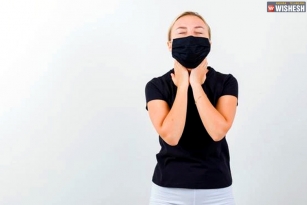
(Image source from: Freepik.com)
All you need to know about Saree Cancer:- Squamous cell carcinoma (SCC), also known as Sally cancer, is a type of skin cancer that develops in areas exposed to chronic irritation or friction. Although not limited to sarees, tightly worn saris, petticoats, and dhotis can increase the risk of squamous cell carcinoma of the lower back. Also known as "Sally cancer" because it is more prevalent in sun-exposed areas such as the neck and face, this cancer is a type of skin cancer derived from squamous cell carcinoma. H. Flat cells in the outer layer of the skin. Although squamous cell carcinoma is usually less aggressive than melanoma, it can still pose serious health risks if left untreated.
SCC usually appears as a red, scaly patch, a sore that does not heal, or a raised tumor with a central depression. Although it can occur on any part of the body, it most commonly occurs in areas that are frequently exposed to sunlight, such as the face, neck, ears, hands, and arms. Risk factors for SCC include long-term exposure to ultraviolet (UV) radiation from the sun or tanning beds, a history of sunburn, fair skin, a weakened immune system, exposure to certain chemicals or radiation, and pre-cancerous This includes a history of skin lesions.
Symptoms:
Red and itchy patches, Ulcers, Lumps near the waist.
Tips:
Wear a loose saree or petticoat.
Maintain good hygiene around the waist.
To increase comfort and reduce chafing, consider wearing shapewear under your petticoat.
Always choose a wide belt-like cord rather than a thin rope-like cord.
Please check your waist regularly for any changes.
Limit your exposure to sunlight, especially during rush hour from 10 a.m. to 4 p.m. When outdoors, seek shade whenever possible and wear protective clothing such as a wide-brimmed hat, long-sleeved shirt, and sunglasses. Use a broad-spectrum sunscreen with SPF 30 or higher and reapply every two hours or after swimming or sweating.
Tanning beds emit harmful ultraviolet rays and can increase your risk of developing skin cancers, including squamous cell carcinoma. Avoid using tanning beds completely.
Know your skin and do monthly self-exams to check for moles, freckles, and other changes in skin growth. If you notice any suspicious lesions or changes on your skin, consult a dermatologist.
Lips are also susceptible to sun damage and skin cancer. Protect your lips from harmful UV rays by using a lip balm with SPF.
Cigarette smoking may increase the risk of squamous cell carcinoma, especially of the lips. Quitting smoking can help reduce this risk and improve your overall health.







